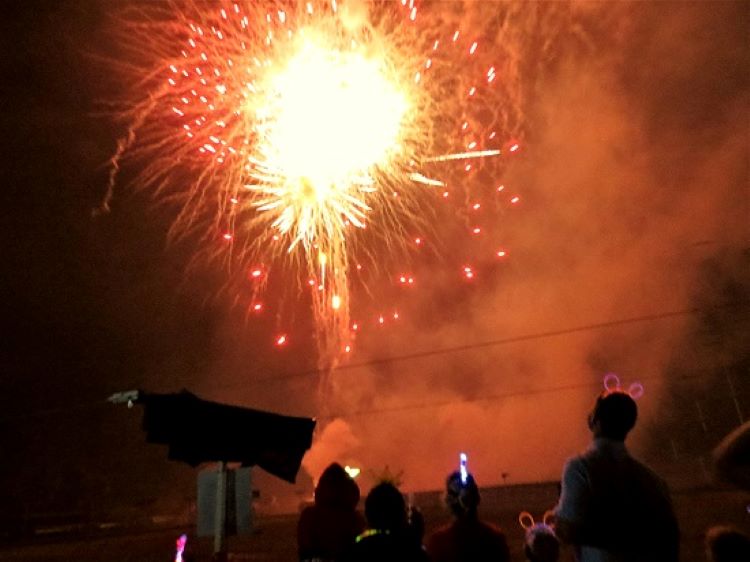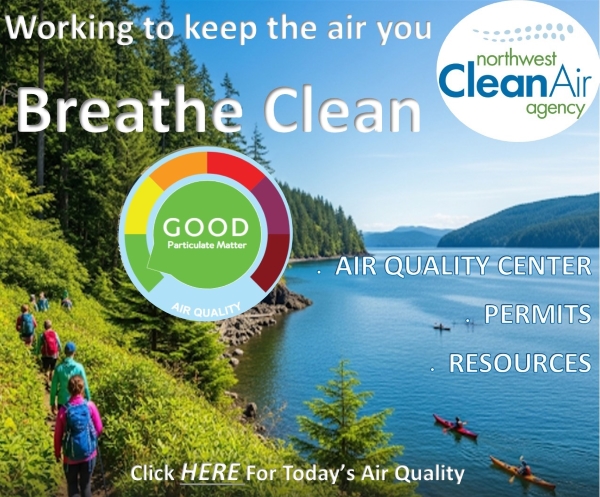Fireworks have long been a beloved tradition during Fourth of July celebrations, lighting up the night sky with dazzling colors, booming sounds, and vibrant displays. Whether you’re at a public event or setting them off in your neighborhood, fireworks are synonymous with Independence Day festivities across the U.S.
However, behind the sparkle and spectacle lies a serious set of concerns that are often overlooked, especially when it comes to air quality and health.
According to the Northwest Clean Air Agency (NWCAA), one of the highest annual spikes in fine particle pollution in area counties occurs on the night of July 4 and into the early hours of July 5. This sharp rise is directly linked to the widespread use of fireworks. Aside from wildfire smoke and winter woodstove burning, fireworks are among the region’s top contributors to unhealthy air.
Fireworks smoke contains a mix of harmful pollutants, including fine particulate matter (PM2.5), sulfur compounds, and heavy metals like barium, strontium, and copper, which are used to produce the colors we see in fireworks displays. These pollutants can easily be inhaled deep into the lungs, especially for people with asthma, heart disease, or other respiratory issues. Children, seniors, and those with compromised immune systems are particularly vulnerable.
Beyond health concerns, fireworks also present serious fire and safety risks. Dry grasses, brush, and trees can easily ignite from a stray spark or ember, leading to destructive wildfires or structural fires. Fire departments across the Northwest typically see an uptick in fire-related incidents and emergency room visits due to burns and other injuries during the holiday.
If you do choose to celebrate with fireworks this year, make sure to plan ahead and take appropriate safety precautions:
To keep an eye on real-time conditions, check out the Northwest Clean Air Agency’s Air Quality Center before and during your celebration: https://bit.ly/3lXahMq. This helpful tool offers up-to-date air quality monitoring throughout area counties.
This Fourth of July, have fun, stay safe, and consider the impact your celebrations may have on your neighbors, your community, and the air we all share.




